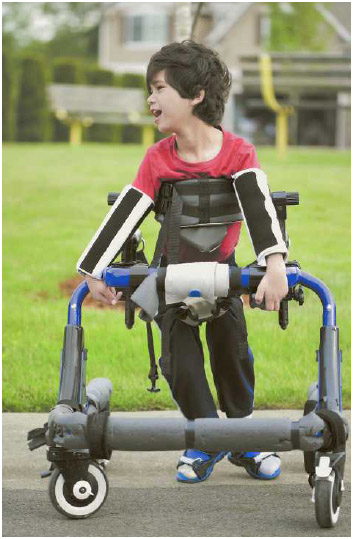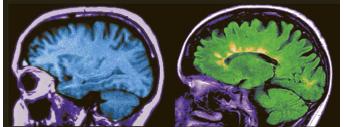It’s March, and that means lots of things: Women’s History Month, International Women’s Day, Saint Patrick’s Day, the Ides of March.
It’s also both Cerebral Palsy Awareness Month and Multiple Sclerosis Awareness Month.
What is Cerebral Palsy?
 Cerebral Palsy (also called Static Encephalopathy) is a neuromuscular disease caused by brain damage before, during, or shortly after birth. Depending on the extent of the damage, Cerebral Palsy can affect a person’s walking, speech, and other motor skills. While Cerebral Palsy is caused by brain damage, many people affected by it can still learn and process things going around them.
Cerebral Palsy (also called Static Encephalopathy) is a neuromuscular disease caused by brain damage before, during, or shortly after birth. Depending on the extent of the damage, Cerebral Palsy can affect a person’s walking, speech, and other motor skills. While Cerebral Palsy is caused by brain damage, many people affected by it can still learn and process things going around them.
There are over 750,000 people in the United States who have displayed symptoms of CP. These symptoms include anything that has been affected by a nondegenerative complication or paralysis of the brain or nervous system.
The most important thing to know about CP, according to the Gale Encyclopedia of Medicine (2015) is this: “CP is not a specific condition, but is more accurately considered a description of a broad but defined group of neurological and physical problems.”
The research and engineering around CP has been super interesting over the past several years. If you’ve seen Speechless, you know about word tables and other methods people with CP use to communicate. Things like that are not just limited to fiction! Take a look at this report about a trial for robots gait-assisting kids with CP. How cool is that? Because science.
And while chronic, CP is not always something to hold you back. Did you know RJ Mitte, known for playing Walter White, Jr. in Breaking Bad, has CP?
Cerebral Palsy Awareness Month is supported by United Cerebral Palsy, an organization dedicated to educating about cerebral palsy and advocating for people with cerebral palsy.
What is Multiple Sclerosis?
 Multiple Sclerosis, opens a new window is a disorder that affects primarily the nervous system. When myelin, a fatty tissue that surrounds and protects the parts of the central nervous system is damaged or destroyed, scar tissue forms on nerve endings and other parts of the system, making it difficult for the brain to send messages to the rest of the system. This affects both minor and major motor functions, including walking and speaking.
Multiple Sclerosis, opens a new window is a disorder that affects primarily the nervous system. When myelin, a fatty tissue that surrounds and protects the parts of the central nervous system is damaged or destroyed, scar tissue forms on nerve endings and other parts of the system, making it difficult for the brain to send messages to the rest of the system. This affects both minor and major motor functions, including walking and speaking.
It has not been determined what causes MS, but researchers have made a connection to inflammation of some sort. Exposure to certain environments might contribute as well. While people with close family members are more likely to develop MS, it has not been proven to be hereditary.
Keep up with the most recent research on MS by following the newest academic journal entries on Academic OneFile.
Multiple Sclerosis Awareness Month was created by the Multiple Sclerosis Foundation, opens a new window, an organization dedicated to supporting people with MS and promoting and supporting research that will continue to help them live healthy, full lives.
How much do you know about these two disorders? Want to know more?
Links updated 01.15.21

